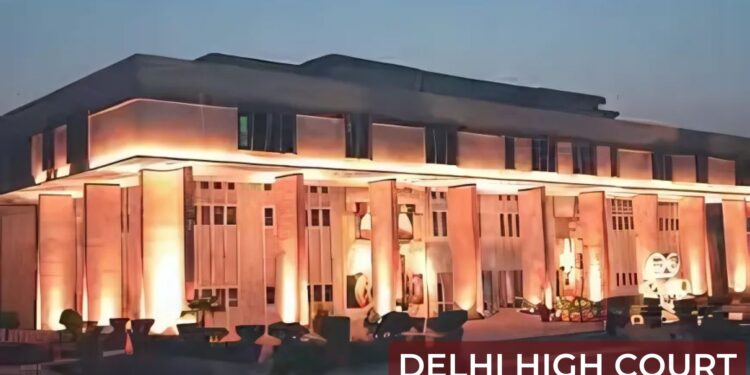The Delhi High Court recently ruled that the filing of an application under the incorrect provision of law is not necessarily fatal to a case, as long as it does not cause prejudice to the other party [Rajeev Shukla vs Gopal Krishna Shukla].
Justice Ravinder Dudeja observed that when an incorrect section or provision does not mislead either the court or the other party and does not result in prejudice, such a mistake should be regarded as a “curable defect.” Therefore, the Court clarified that such an error would not derail the case.
“Incorrectly mentioning the section of law in an application is generally not deemed fatal to the case, as long as the substance of the application is clear and no prejudice is caused to the opposing party or the court,” the Court stated.
This matter arose from a suit seeking recovery of damages and the granting of permanent and mandatory injunctions. The trial court had dismissed the petitioner’s application for condoning the delay in filing the written statement because it was filed under Section 151 of the Civil Procedure Code (CPC), instead of under the Limitation Act. The trial court had further struck off the petitioner’s defense and closed his right to file the written statement. The petitioner then appealed to the High Court.
Justice Dudeja emphasized that courts typically prioritize the substance of an application over procedural technicalities, especially when the intention and relief sought are clear. “The trial court should have focused on the application’s content rather than the technical mistake of citing an incorrect section. Procedural errors should not overshadow the pursuit of substantive justice,” the Court remarked.
The Court also pointed out that Section 151 of the CPC grants the court-wide powers to ensure that justice is served. It held that the trial court should have evaluated the application on its merits, regardless of the section cited.
As a result, the High Court directed the trial court to reconsider the application for condonation of delay and to hear arguments on the matter once again.
Advocates Jaskaran Singh, Anshul Gupta, and Yash Singh represented the petitioner, while Advocates DD Sharma and Prashant Yadav represented the respondent.

















